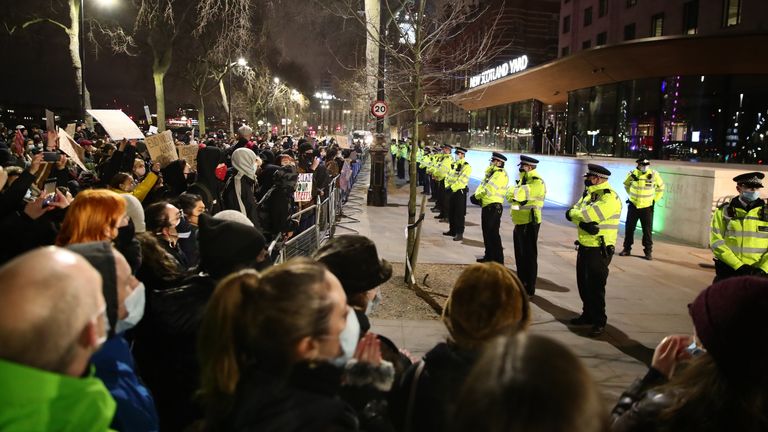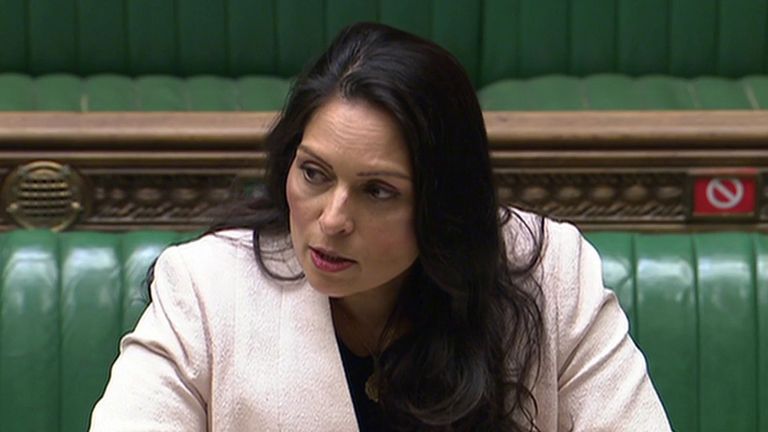MPs and peers have warned the government that a controversial Bill which places curbs on demonstrations will restrict peaceful protest in a way that is inconsistent with human rights.
The Joint Committee on Human Rights (JCHR) has published a report raising concerns about the government’s Police, Crime, Sentencing and Courts Bill, namely that it would curtail an individual’s right to protest.
It comes as demonstrations have been held across England against the legislation, which the Home Office has maintained contains measures that are “in line with human rights legislation”.
The JCHR concludes in its report that some clauses of the Bill should be removed – particularly part 3 which makes major amendments to the way protests are policed in England and Wales.
These changes would increase restrictions on peaceful protests “in a way that we believe is inconsistent with our rights”, the committee says.
It also calls for the proposed rule allowing the police to put conditions on protests based on how noisy they are to be removed from the legislation, stating it is neither “necessary nor proportionate”.
“There is a real risk that more substantial penalties would have the effect of dissuading people from exercising their right to engage in peaceful protest,” the report states.
The group of MPs and peers also calls for a statutory protection for the right to protest to be introduced into the bill.
Labour MP and chairwoman of the JCHR Harriet Harman said: “The government put forward new powers in areas where the police already have access to powers and offences which are perfectly adequate.
“Noisy protests are the exercises of the lungs of a healthy democracy. They should not be treated as an inconvenience by those in power.
“We are calling for the right to protest peacefully to be given explicit statutory protection.”
A Home Office spokeswoman said: “The right to protest is a cornerstone of our democracy. Our proposed measures are in line with human rights legislation and in no way impinge on the right to protest.
“Public order legislation is out of date, and the use of disruptive and dangerous tactics – including obstructing emergency vehicles or blocking the free press – costs millions to the taxpayer and causes misery to businesses and local communities.
“These measures – which are backed by the police and were supported by the NPCC ( National Police Chiefs’ Council) in oral evidence to this committee – will enable police to better manage demonstrations so that legitimate protest groups can make their voices heard without disrupting the lives and livelihoods of others.”
The Police, Crime, Sentencing and Courts Bill is a near 300-page piece of proposed legislation covering the government’s flagship crime and justice plans.
Among the bill’s many measures are plans to introduce tougher sentences for the worst crimes, while also stopping the automatic early release from prison of serious and violent sexual offenders.
The death of Sarah Everard – and the Metropolitan Police’s handling of a vigil for her – sparked a renewed focus on the bill and its contents.
Critics fear it could be used to curtail the rights of people to protest, while ministers say the “tough” legislation will help keep people safe and contains vital reforms.


